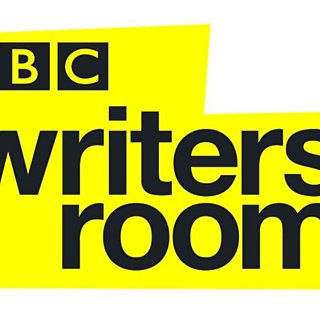The results of our most recent open submission Script Room window have just been sent out. For the first time, in this window we accepted both Drama and Comedy Drama scripts. But what is Comedy Drama? We turned to Robin Taylor from our reading team for some advice.
Considering Comedy Drama
When it comes to writing, there are several big questions, such as where did I leave my pen? How do you spell exeunt? And the biggest question of all, what is a comedy drama? Well, maybe it’s not the biggest question, but it is an interesting one.
Comedy drama has been floating around as a term for a while now, but still feels relatively recent. It was a prominent medium from the late 90s into early 2000s, but then became somewhat out of favour. Yet now it is potentially a booming genre, as shown by the fact it has become a distinct category in the annual ����ý Writersroom Script Room opportunity. At the same time it is still possible to debate what is and isn’t a comedy drama, since it is not the most robustly defined style. It could be easy to say “It’s a drama with some funny bits” or “It’s a comedy that’s serious sometimes”. But this is quite a simplistic interpretation, and potentially part of the reason why comedy drama fell out of favour, as it was seen as a slightly wishy-washy halfway house, not necessarily satisfying from a comedic or dramatic point of view.

The classical divide of and has essentially been supplanted by comedy and drama, especially in modern culture. There have been long held standards of comedy and drama on television and radio, particularly in terms of duration. Traditionally comedies/sitcoms have been in thirty minute slots and dramas one hour, with comedy dramas capable of filling either slot but usually meeting the sixty minute standard. However, particularly through the rise of streaming services, we are now in a period of significant flux in television, in terms of duration and genre. With the decline of traditional sitcoms, quite possibly accelerated by the coronavirus, there is room for increasing variation in writing styles. Comedy drama is likely to play a big part in that change, so it could be helpful to have a stronger understanding of what it may mean as a term.
This blog post will aim to assist that understanding by considering and defining the qualities which exist within the major genres of comedy and drama, identifying interesting exceptions, and how the two mediums can be combined effectively. Through this process we can also consider the importance of categorisation within your own writing, which genre suits you best, and how to create a script which effectively matches your intentions.

Sitcom
Sitcom is the easiest format to define as pure comedy, particularly in its traditional form. There was a time when sitcom referred exclusively to a comedy recorded in front of a studio audience, a la Mrs Brown's Boys or Upstart Crow. (You can read an article specifically on that subject here). With recent global developments it probably comes across as a naïve relic, but hopefully there are still interesting ideas in there and studio sitcoms do have some kind of future!
Pretty much since The Office, the definition of sitcom has altered to include single camera comedies, with recent examples including Motherland or Ghosts. Regardless of filming style, sitcoms have shared qualities. Primarily this is a predominantly comedic tone, with the aim of a high level of gags, and stories which build towards comedic rather than dramatic conclusions. As the ‘sit’ part of sitcom would suggest, they are often built around very clear situations, such as a family unit, workplace or flat share, with fixed regular locations. However they can also be focused upon a lead character, such as or Miranda. Sitcoms also have a very episodic approach, with clear stories of the week and something of a reset button at the end of each episode, so the next instalment does not follow on but begins a new story. Obviously developments can carry over, such as changes in character relationships, but there is not necessarily a need to have seen the previous episode to understand what is happening.
There are exceptions to this, such as Two Pints which had an almost soap opera approach to a narrative arc, even including a “Previously on…” opening to each episode. Even here though, the self contained plots of episodes create a need to tell a complete story, rather than leave a situation to be resolved in the following episode. (Unless it was a two parter... I did say there are exceptions!) Despite any differences between them, these kind of shows all sit quite comfortably under the sitcom umbrella, even if now and again you may think “That’s a sitcom?!” when you look them up on your internet search bar.
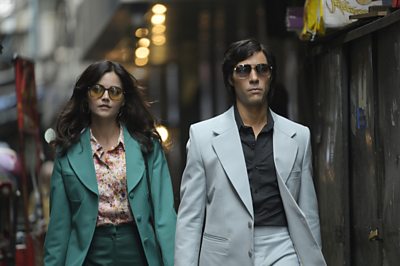
Drama
The most obvious distinction between comedy and drama is in the tone, with little to no emphasis on humour in a standard drama. Another difference is the progressive nature of drama, best exhibited by Continuing Dramas, (the technical name for soap operas like EastEnders, which have perpetually ongoing plots and generally require sequential viewing). Drama series are standard runs of narrative arc stories, usually told over six or more episodes, with the potential for multiple series, for example His Dark Materials, or Normal People, (which is interesting for being a thirty minute-per-episode drama). A limited series meanwhile is a contained, one series, singular story, such as The Serpent, and these can sometimes have lower episode counts too.
There are some dramas which fit the episodic model of sitcoms, with a story of the week format, often what is termed as procedurals, such as police, medical or legal dramas, while something like Doctor Who uses this approach alongside a series arc. Again, these require plots with beginnings, middles and ends that play out over the course of one episode. There is also some crossover, so Holby City would be considered a procedural continuing drama, while Line of Duty is a procedural drama series. Basically it can get quite confusing! This is in part because drama is a broad church full of genres - horror, sci-fi and fantasy would all be a part of the drama family.
It’s quite easy to think that anything that isn’t a comedy is a drama, whereas you wouldn’t necessarily say that anything that isn’t a drama is a comedy. (I mean, you might, it depends what kind of things you tend to say.) The progressive nature of many dramas also allows for a greater sense of character growth and development, while in sitcoms it can be more likely that the characters essentially stay the same. (Though of course exceptions can apply!)
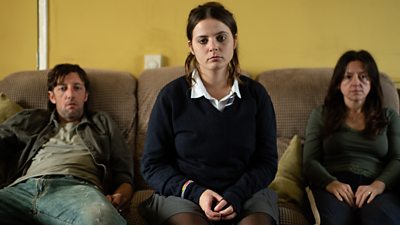
Comedy Drama
And so we come to the subject of this big old blog post, comedy drama itself. In terms of its history, we could retroactively label some programmes as comedy dramas even though they may not have been called that at the time. Wikipedia identifies as the earliest TV comedy drama, but arguably the genre was made most apparent by ITV's . The story of three couples, Cold Feet explored these relationships and some serious themes within them, including fertility, infidelity and illness, but balanced this with a lighthearted approach and strong comedic performances. Its success created a surge of similar shows, but as they struggled to emulate its popularity, it made the genre less desirable. It’s certainly interesting that a resurgence of comedy drama is occurring around the same time as the recent return of Cold Feet.
A great contemporary example of a comedy drama is In My Skin on ����ý Three/����ý iPlayer, which tells the story of school girl Bethan dealing with her mother’s mental illness, her father’s alcoholism and her own burgeoning sexuality. Obviously these are big emotional issues befitting a drama, but they are matched by a strong comedic element in the main character’s ‘other’ life at school, which is raucous and funny. The two aspects of the story effectively split the styles of comedy and drama, but they work together incredibly effectively, with Bethan’s likeable, light-hearted public persona showing a potential happy life in contrast to her difficult home life. The humour and pathos complement one another powerfully. This is a great strength of comedy drama, the potential to show the light and dark sides of life. (You can read the scripts for In My Skin by Kayleigh Llewellyn here)
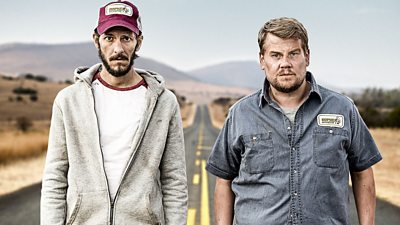
The drama of comedy drama is not always determined by emotion though. The Wrong Mans is a comedy drama which takes the dramatic premise of two men becoming accidentally involved in a crime conspiracy. This very serious situation is juxtaposed by the inept characters who are thrust into it, and this contrast manages to create real tension alongside lots of humour.
Both of these examples point towards an intentional use of comedy drama and why the medium suits the idea, so when writing it is useful to think through why exactly you wish to use the genre you are writing. How does it allow you to explore certain ideas, tell your story a certain way or best utilise your skills as a writer?
Now that we’ve established the main genres, it’s worth saying that writers don’t necessarily need to know all of the sub-genres within them. Mostly these kind of definitions matter to commissioners and producers more than writers. But it can be useful when pitching an idea, and indeed writing it, to understand which category you are potentially working within. This knowledge can make it easier for producers to understand your intentions or for you to consider how your writing fits within an established medium. This can also help you ascertain whether your script is suitable for certain opportunities which are looking for particular styles or formats. Before we move on to what that involves though, let’s quickly look at a couple of outliers which may not fit the traditional moulds.
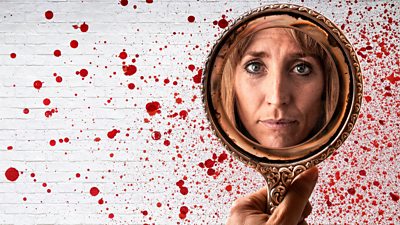
A Couple of Outliers Which May Not Fit The Traditional Moulds
Obviously a sitcom is not the only form of comedy, and a significant variation from that format is the comedy series. Again the tone is predominantly funny, but the biggest difference is a progressive plot that requires, or certainly benefits from chronological viewing. The best example of this would be Gavin and Stacey, although even here some might argue that it is a comedy drama. It’s noticeable that the concept is defined by the story of a long distance relationship rather than a situation, per se.
Another interesting mutation is dark comedy, which often tackles the kind of serious topics one might expect from a drama, but with a comedic perspective. A defining example of this would be , where the concept of a woman’s husband dying of cancer is entirely played for laughs. The recent Back to Life is similar in many ways, but has a more emotional approach which means it would be defined as a dark comedy drama, just to add another classification into the mix. Then there’s Inside No. 9 which is a dark comedy anthology, with every episode basically independent from one another. (I’m going to need a lie down after this.) The important thing to note here is that serious topics do not immediately transform a comedy into a comedy drama if the tone is still predominantly comedic.

There are also examples which can potentially cross boundaries to the extent it could be a matter of personal perception. Is Fleabag a comedy series or a comedy drama, or even a sitcom? Personally I’d call it a comedy, but if someone else called it a comedy drama I wouldn’t drag them out of the room by their hair. Is Killing Eve a drama or a comedy drama, or a comedy? It feels safe to go with the middle option, but there could be arguments either side. With both of these shows the elements are so well integrated, emotion in the former and humour in the latter, that it never feels out of place, so however they may be interpreted, they remain strong, effective pieces of writing.
While reading this you may well have been thinking of other examples of exceptions, and it’s likely you’re either absolutely right, since the definitions are not rigid, or certain programmes can be perceived differently by different individuals. But this issue of interpretation points towards an interesting complication, that many scripts can contain elements of comedy and drama without being categorised as combinatory writing. (I used that term as a way of avoiding writing comedy drama for the 58th time, but then it seemed like quite a nice description.)

A Few Jokes Do Not A Comedy Drama Make
In the opening of this blog post we discussed the idea that thinking of comedy drama as comedies with serious bits or dramas with some jokes was not a useful definition. Another reason for this is that a multitude of comedies have serious elements and dramas have funny moments without fitting the model of comedy drama. One Foot In The Grave had instances of incredible pathos, but the overriding tone is still comedic and designed to make the audience laugh. The ending of is arguably one of the most moving television moments of all time, but that does not negate all the silliness that came before it and stop it being a sitcom. (Though there is room for an interesting debate whether if certain sitcoms had their studio audiences removed, that they may then come across more as comedy dramas).
Equally humour can be a huge part of dramas, in the form of comedic side stories or comic relief characters or simply funny exchanges. Happy Valley is a very serious and often bleak drama, but there are still moments of levity which can break up the sombre tone. This goes back to the idea of light and shade within life, because even in dire circumstances funny things can happen or be said, and a happy world can still be punctuated by instances of sadness and sentiment. What’s noticeable is that they are infrequent or rare, so that the primary genre remains dominant. Nonetheless, these moments are reflective of our humanity and can provide real depth and sincerity to writing, as well as exploring the complexity of characters so they do not just show one side of themselves and we empathise with them fully. This is also why the elements of a comedy drama potentially need to be more pronounced in order to differentiate a script from its composite genres. And within this there can be a real need for diligence and sensitivity.
Moving between tones in any medium is always a delicate operation. Humour in the midst of a serious moment can run the risk of deflating the tension being built. Conversely a painfully serious incident during the comedy can affect the audience’s proclivity to laugh. Obviously it is possible to mix moods, but it’s important to think about how it is being done so that it does not disrupt, jar, or even shift the tone in a way that it changes the entire mood of the script, creating apparent inconsistency. This concern is potentially heightened in a comedy drama because of the inherent coexistence of different tones. Sometimes this manifests in delineation, making it evident which are the serious characters/stories and which the comedic ones. It can also help to give a scene a solid mood which is not disrupted by incorporating the other element or to build from one mood to the other, so starting with a comedic tone but building drama and tension as the episode or series progresses. Even within this framework it’s necessary to think about how the two tones complement and enhance one another without stepping on one another’s toes, and while this is a challenge, it can create a very impactful script.
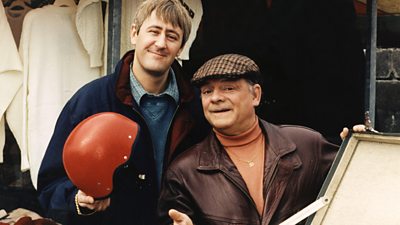
What Makes A Story Dramatic? (Or Indeed, Comedic?)
When it comes to describing story types it can be tempting to say a drama is dramatic or a comedy is comedic and hope there’s enough inherent information there to not sound like you’re just stating the blooming obvious. But this is supposed to be an educational blog post, so let’s try to dig a little deeper.
A useful method of thinking about story types is by looking at the stakes which are involved. For an example, we’ll have a think about the fairly familiar sitcom, Only Fools And Horses. As with most effective stories, Del Boy has a clear motivation (Oh look, here’s a blog post about motivation, what a coincidence) Namely, he wants to be a millionaire. While this drives the majority of his behaviour and the situations he gets into, the stakes are relatively low. It doesn’t really matter if he succeeds or fails, he will just continue trying, and while the audience root for him, if he were to make his fortune the situation would significantly change. (And Only Fools did explore this idea towards its conclusion) This lack of real jeopardy lets us enjoy his antics in a fairly carefree fashion, allowing us to laugh along without worry. Dramatic stakes would increase the jeopardy significantly. So if Del Boy had a more urgent requirement to make that money, such as needing to pay for Rodney’s life-saving surgery, the stakes have raised considerably. It now really matters whether Del Boy succeeds or fails, it’s literally a matter of life or death. While it could be possible to mine some comedy in such a situation, it is tricky with the serious nature of the predicament. The risk is that the comedy would undermine the tension, unless it were to embrace this and become a dark comedy. This doesn’t mean that all dramas must be deadly serious, but there is a need for a sense of significance in the story being told, whether it’s saving the world or simply two people falling in love.
A comedy drama story would potentially be somewhere in the middle of these two. So if for example Del Boy had borrowed some money from some gangsters and needed to pay them back, there is still dramatic jeopardy but it is not quite as heavy as his brother potentially dying. Within this plot there is still room for variation depending on tone. So if the gangsters were quite stupid and useless there would be a diminished threat and an increased sense of humour, which could befit either a comedy series or a comedy drama. If the gangsters were evidently violent and ruthless, the stakes are increased again as Del Boy’s wellbeing is more at risk. However his response of hare-brained money making schemes could still be humorous, building comedy drama sensibilities. Again, this comes back to the overall tone you are creating.
What’s interesting to note is that comedy has a very clear primary objective, which is to amuse its audience. A great comedy will do more than just make people laugh, but if it doesn’t make them laugh it is seen as failing. A drama has more open potential in that its aim is to make the audience feel something, which could be anything from a variety of emotions including empathy, excitement or intrigue. This is why comedies can elicit more visceral responses of “I hated it, it wasn’t funny.” It’s rare someone will berate a drama saying “It didn’t make me feel anything.” Thus comedy drama is potentially a more complex operation, because the anticipation is that it will make the audience laugh and provide additional emotions on top. (Just to reiterate, good comedies also make us feel things, particularly caring for the characters, but it is not the principle audience expectation, which is amusement.) Therefore a comedy drama needs to figure out how to create laughter which complements and does not hinder the drama within it. The aim here isn’t to deter people from writing comedy dramas because they are tricky, but to encourage you to really think about the process, an approach which should be ideally applied to any style you write.

Defining Your Writing
It can be very tricky when starting out to know exactly what you are trying to write or how to do so. Usually we just have an idea and start writing and exploring it in the process of getting it on the page. But it can be very useful to start thinking about what your script actually is, either before you begin or once you have finished writing. This is particularly true when it comes to comedy drama because it does bring inherent expectations and the need to differentiate itself from a pure comedy or drama. It suggests a strong level of humour, but not one that is so pronounced that there is nothing but laughs.
Defining your script in a certain category assists anyone reading it in understanding your intentions, and therefore allows them to evaluate how effective the writing is in achieving these aims. So it will be worth asking yourself, is your script really a comedy drama, or would it be better described as a comedy or a drama? Equally you may believe that your desire is to create a comedy drama, but the script could be worked upon to strengthen one side if it feels somewhat imbalanced. So would it benefit from more humour or gravitas? Does a comedy drama demand more humour than you are comfortable delivering, or does it even begin to feel like an obligation rather than something you want to do?
Knowing what you want to write is part of strengthening your vision, which is a truly valuable aspect of writing. And remember that scripts can alter and evolve either as they are written or edited. You may think you are writing a drama but find yourself creating a significant amount of funny moments, or be aiming for a comedy yet wish to further explore the emotional aspects of the characters without the need for consistent humour. In those cases you can evaluate how significant those elements are, whether they redefine the piece, and if you wish to heighten them further to build a hybrid of the genres.
As ever, the most important thing is to keep writing ideas that you are passionate about and stories you wish to tell, because that is what is fulfilling in the creative process and will hopefully lead to your work being enjoyed and appreciated. Classifying your writing need not be a major concern, especially when the definitions are not rigid, but it is certainly worth considering, as it may allow you to think about your aims within a script and ensure that you are creating work which fits the mood you wish for.
A great script is a great script, and sometimes it exemplifies a genre, other times it defies it. Working within a dual genre may bring challenges, but it may also afford you greater creativity and push you to really think about how you write and why, which can only be a good thing.
Read more blog posts by Robin Taylor
Find out more about our Open Call opportunity
����ý Writersroom no longer operates a submission window for pure comedy/sitcom scripts
Visit the ����ý Commissioning website to find out more about Comedy opportunities at the ����ý including the
